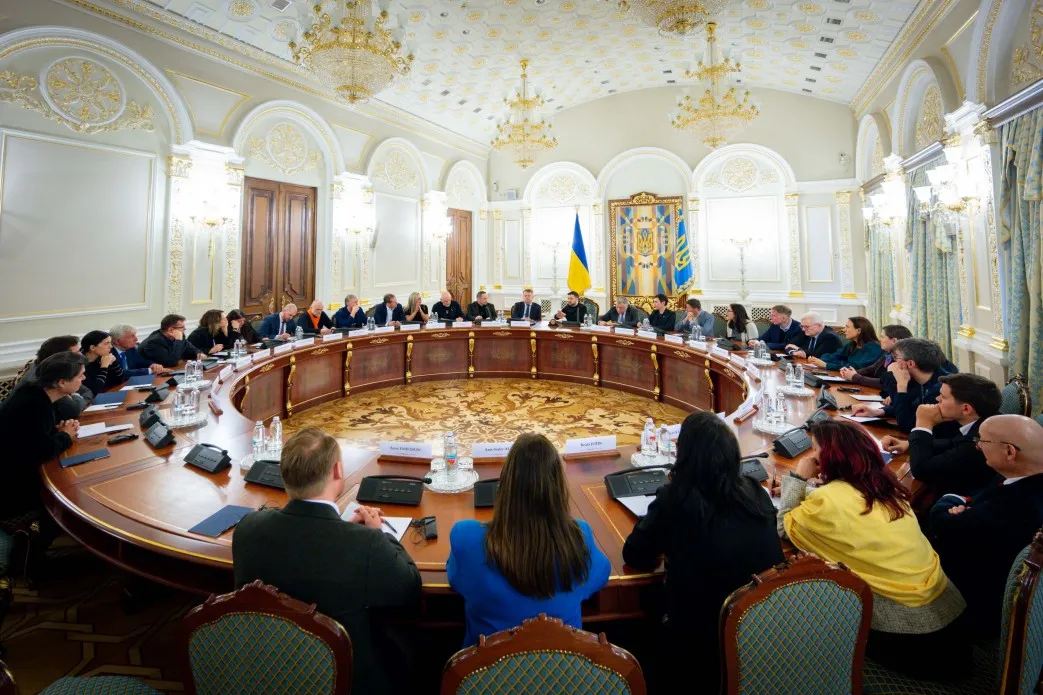President Joe Biden and Israeli Prime Minister today publicly signed the “Jerusalem U.S.-Israel Strategic Partnership Joint Declaration,” a document which reaffirms “the unbreakable bonds” between the U.S. and Israel and commits the U.S. to never allow Iran to acquire a nuclear weapon capability. The United States’ “steadfast commitment to preserve and strengthen Israel’s capability to deter its enemies and to defend itself by itself against any threat or combination of threats … [is] bipartisan and sacrosanct … vitally important to the national security of the United States itself,” it states. Integral to this pledge, “is the commitment never to allow Iran to acquire a nuclear weapon, and that it is prepared to use all elements of its national power to ensure that outcome.”
U.S. commitment to Israel’s military superiority in the region, including support for and cooperation on Israel’s missile defense programs and high-energy laser systems, is also stated.
In a joint press conference after their 50-minute private meeting and signing of the document, Biden did not, however, satisfy Lapid’s demand that the U.S. mount a credible military threat against Iran’s nuclear program. Lapid had publicly (and undoubtedly privately) repeated that demand after Biden arrived in Israel, insisting that “the only thing that will stop Iran is knowing that if they continue to develop their nuclear program the free world will use force. The only way to stop them is to put a credible military threat on the table. It should not be a bluff, but the real thing.”
Biden, however, told the press conference: “I continue to believe that diplomacy is the best way,” even though he promised that “we’ll make sure Israel can defend itself, by itself.”
In an interview broadcast Wednesday night on Israel’s Channel 12 (taped prior to flying to Israel), Biden did say, when pressed, that he would use force against Iran as a “last resort” to prevent it from obtaining nuclear weapons, although still stressing his preference for negotiating with the Iranians instead. Asked if the U.S. would use force to stop Iran’s nuclear program, Biden replied “as a last resort, yes. Iran cannot get a nuclear weapon.”
When interviewer Yonit Levi asked the President if he had received any commitments from Lapid or his recent predecessor Naftali Bennett that Israel would not act alone militarily against Iran’s nuclear sites, as it has threatened, without first notifying the U.S., Biden would not comment, nor would he speak to possible Israeli involvement in any potential military action by the U.S. to prevent Iran from going nuclear.
The other differences seen between the two were over Russia (the joint statement merely expresses “concern” over the Ukraine conflict, neither expressing support for sanctions against Russia nor charging Russia with “unprovoked” actions), and interest in a two-state solution to the Israel-Palestine conflict. Biden argued for the two-state solution, but Lapid, when asked by a reporter whether he still supports the concept of a two-state solution with the Palestinians, agreed that “a two-state solution is a guarantee for a strong democratic Israel with a Jewish majority,” but ignored a second question regarding whether he’ll advance the issue if he is elected prime minister in the November election.


